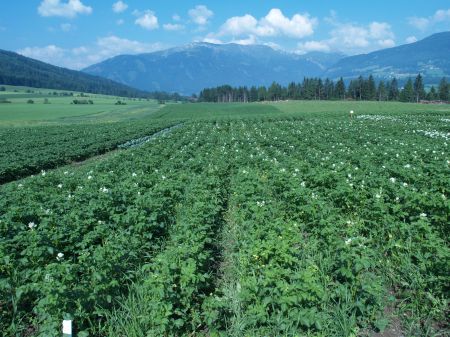The sclerotia ("pocks") of the fungus on the surface of the tuber represent a reduction in the phytosanitary quality of planting material and cause problems in marketing for washed consumer goods. The pathogen is transmitted both via the planting material and via the soil. The disease will occur This is particularly promoted by delayed emergence of stocks as a result of unfavorable weather conditions (low air and soil temperatures). Too tight potato crop rotation, the use of field fodder or clover grass and a predominant supply of potatoes with organic fertilizers, here primarily through straw-based manure, increase this Risk of infestation.
Unlike other diseases, there is no longer any way to combat Rhizoctonia solani during the growing season. Counter strategies therefore consist, on the one hand, of suitable crop cultivation measures, such as optimal potato crop rotation, a reduction in organic fertilizers and the choice of an optimal sowing time Soil temperature allows the laid tubers to emerge quickly. Planting material dressing in combination with an optimal application technique also reduces infestation and thus secures yields and significantly increases the quality of the harvested product.

Rhizoctonia - important pest of potatoes
HBLFA Raumberg-Gumpenstein





